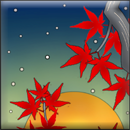On The Way: The Daily Zen Journal
One Practice Samadhi Part 2
Hui-neng (638-713)

Good friends, I know there are people who tell others to devote themselves to sitting and contemplating their minds on purity and not to move or think. Deluded people are unaware, so they turn things upside down with their attachments. There are hundreds of such people who teach the Way like this. But they are, you should know, greatly mistaken.
Good friends, what are meditation and wisdom like? They’re like a lamp and its light. When there’s a lamp, there’s light. When there’s no lamp, there’s no light. The lamp is the light’s body, and light is the lamp’s function. They have two names but not two bodies. This teaching concerning meditation and wisdom is also like this.
Good friends, the dharma isn’t direct or indirect. It’s people who are sharp or dull. For those who are deluded, there is indirect persuasion. For those who are aware, there is direct cultivation. Know your mind and see your nature. For those who are aware, there is basically no separation. For those who aren’t aware, there are infinite kalpas on the Wheel of Rebirth.
Good friends, since ancient times, this dharma teaching of ours, both its direct and indirect versions, has proclaimed “no thought” as its doctrine, “no form” as its body, and “no attachment” as its foundation.
What do we mean by a form that is “no form?” To be free of form in the presence of forms. And “no thought?” Not to think about thoughts. And “no attachment,” which is everyone’s basic nature? Thought after thought, not to become attached. Whether it’s a past thought, a present thought, or a future thought, let one thought follow another without interruption.

Once a thought is interrupted, the dharma body becomes separated from the material body. When you go from one thought to another, don’t become attached to any dharma. Once one thought becomes attached, every thought becomes attached, which is what we call bondage. But when you go from one thought to another without becoming attached to any dharma, there’s no bondage. This is why “no attachment” is our foundation.
Good friends, “no form” means externally to be free of all forms. If you can just be free of forms, the body of your nature is perfectly pure. This is why we take “no form as our body.”

To be unaffected by any object is what is meant by “no thought,” to be free of objects in our thoughts and not to give rise to thoughts about dharmas. But don’t think about nothing at all. Once your thoughts stop, you die and are reborn somewhere else.
Students of the Way, take heed. Don’t misunderstand the meaning of this teaching. It’s one thing to be mistaken yourself, but quite another to lead others astray then to criticize the teaching of the sutras while remaining unaware that you yourself are lost.
Excerpted from The Platform Sutra – The Zen Teaching of Hui-neng trans by Red Pine 2006





The Platform Sutra is unique among the sutras which are considered to be the direct teachings of the Buddha. The Platform Sutra consists first of Hui-neng, the 6th Patriarch of Zen, recounting his life, including his spontaneous enlightenment. The rest of the text reflects the skill and depth of his teaching to the monks who trained under him, and for the most part is very understandable.
Unlike many of the traditional sutras which can be difficult to read, the Platform Sutra conveys what it was like to be present in the hall listening firsthand and is very accessible. In this instance, Red Pine, the translator of the text used, sums up the beauty of this work:
“Normally, this is what a teaching consists of: concepts, ideas, constructs of the mind and the relationships among them. But Hui-neng’s teaching is not a teaching of concepts, just the opposite. It is, instead, a teaching of no concepts.
“Hui-neng addresses an audience numbering in the thousands, and every word he speaks is directed at freeing people of whatever concepts block their awareness of their own nature. This is the teaching of Hui-neng: See your nature and become a buddha.”
Over time we will have excerpts from this sutra, but it is well worth reading through multiple times in its entirety.
Watching the golden leaves of autumn blowing in the wind,
Elana, Scribe for Daily Zen